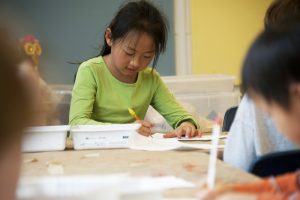From theory to practice: connecting classroom lessons to real life
In today’s world, education has evolved to encompass much more than just traditional classroom teaching. While theoretical knowledge still holds its importance, there is an increasing need for the practical application of that knowledge in our daily lives. This is where the concept of connecting classroom lessons to real life comes into play. By bridging this gap, students are able to develop a deeper understanding of the subject matter, and acquire essential skills that can be applied in real-world situations. In this article, we will explore the benefits and methods of connecting theory to practice in education, and how it can enhance the learning experience for students.
The importance of connecting theory to practice
As students, we have all been through the usual routine of lectures and exams. While this may have helped us to gain a basic understanding of various subjects, it often fails to prepare us for the real world. By solely focusing on theoretical concepts, students tend to miss out on the practical aspect of their education. This can lead to a lack of critical thinking and problem-solving skills, which are crucial in our professional and personal lives.
Connecting classroom lessons to real life can bridge this gap between theory and practice. It enables students to apply what they have learned in the classroom to real-life situations, making their education more meaningful and relevant. This approach not only enhances students’ learning experience, but it also prepares them for the challenges they will face in the future.
Ways to connect theory to practice
Experiential learning
Experiential learning is a method that involves learning through hands-on experience. This allows students to apply theoretical concepts in a practical setting, giving them a real-world experience. For example, science students can conduct experiments to understand scientific principles, rather than just reading about them in textbooks. This helps students to not only comprehend the subject better but also develop important skills such as problem-solving, critical thinking, and teamwork.
Collaborative projects
Another effective approach to connecting theory to practice is through collaborative projects. In this method, students work together in groups to solve real-world problems, using the knowledge and skills they have acquired in class. This not only promotes teamwork and communication but also encourages students to think creatively and develop solutions that are applicable in the real world.
Industry visits and internships
Industry visits and internships are great ways for students to gain exposure to their field of study. These experiences give students the opportunity to work alongside professionals, apply their theoretical knowledge, and gain valuable insights into the industry. By actually working on projects and tasks, students are able to connect theory to practice and understand the real-life implications of their education.
The benefits of connecting theory to practice
Connecting theory to practice has numerous benefits for both students and educators. Some of these include:
Enhanced learning experience
By making education more practical and relevant, students are more engaged and motivated to learn. This, in turn, leads to a better learning experience and improved academic performance.
Develops essential skills
The application of theoretical concepts in real-life situations hones important skills such as problem-solving, critical thinking, and decision-making. These skills are essential for success in both personal and professional life.
Prepares students for the future
Connecting theory to practice prepares students for the real world, where they will face various challenges and problems. This approach equips them with the necessary skills and knowledge to handle these challenges and thrive in their chosen field.
In conclusion
Connecting theory to practice is crucial in modern education. By bridging the gap between theory and practice, students are able to gain a deeper understanding of concepts and develop important skills that will benefit them in the long run. Educators play a key role in implementing this approach and creating a more meaningful and relevant learning experience for students. It is time to move beyond the traditional methods of education and embrace a more practical and holistic approach.










